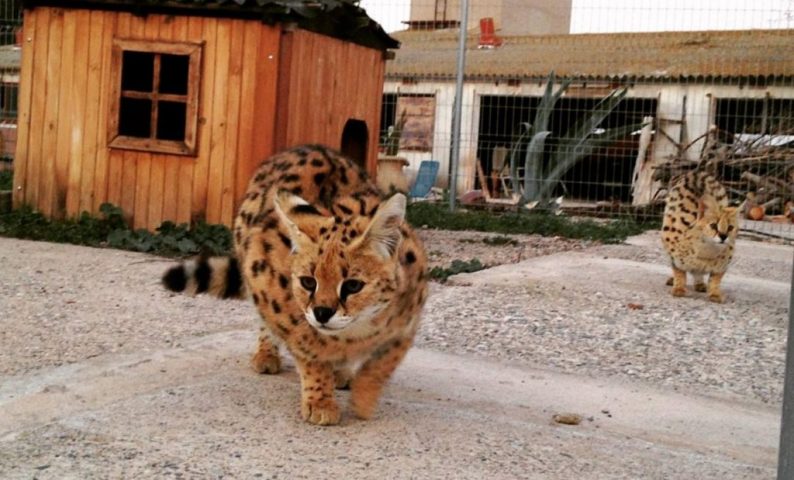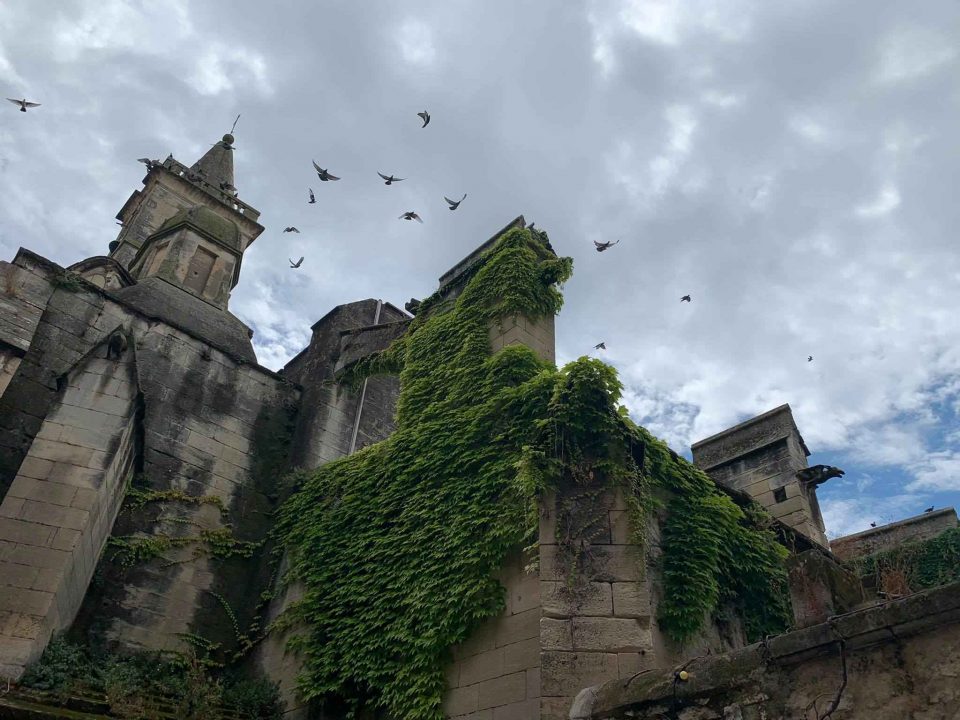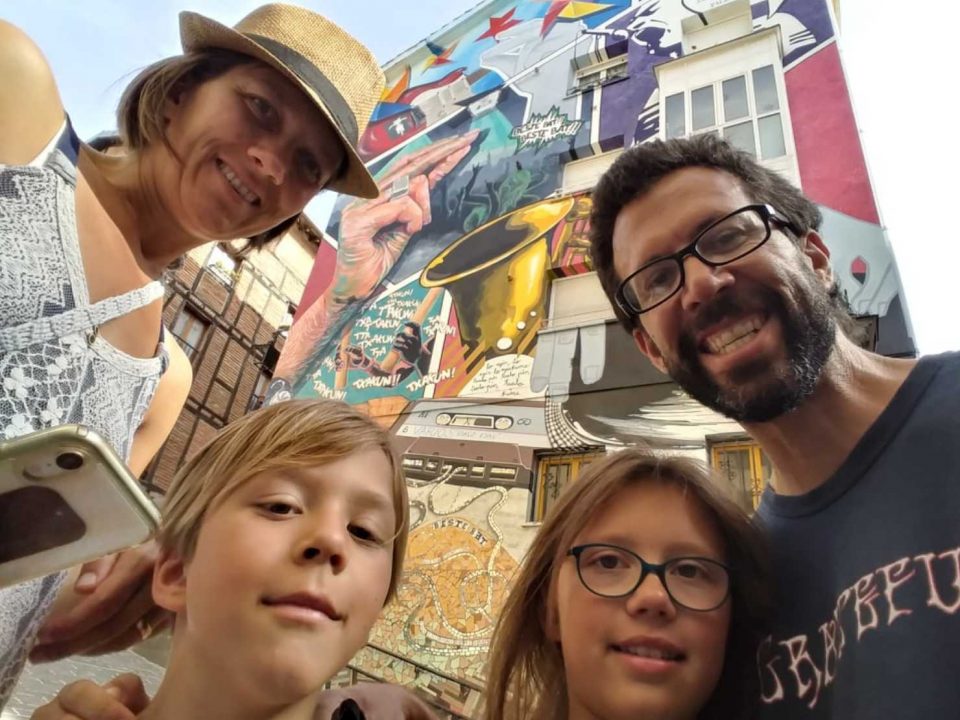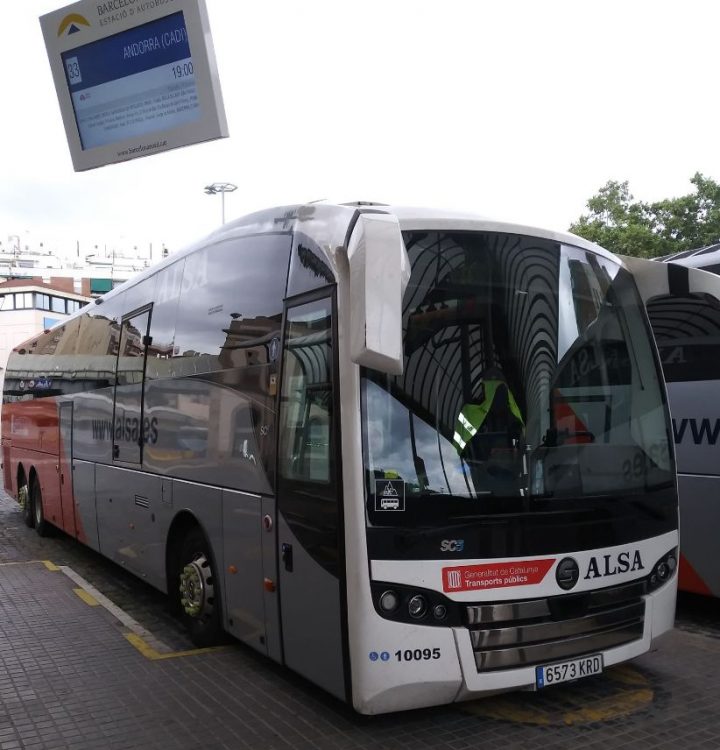
The year 2017 becomes 2018
December 31, 2017
The Social Experiment of a Lifetime
April 22, 2018An hour or two south of the Pyrenees and inland from Barcelona, the Catalan Central Depression is an area with far more appeal than its name might imply. For a family living in the high mountains, the chief attraction in mid-February would be the long stretches of above-freezing temperatures. After spending almost a month under nearly a meter of snow, we were all ready for an excuse to head somewhere subalpine to escape the fred. (Any member of our family trying to escape from Fred would have been sorely out of luck; but in Catalan, the word “fred” means “cold”.)
Having foreseen this sense of seasonal affective disorder, I went onto WorkAway.info a few months ago and signed us up for this two-week stint in Mora d’Ebre. It’s been close to a year since we retired from our 11-month WorkAway tour last spring, so there was something nostalgic about hopping in the VW bus and heading down to the flatlands for a little work-exchange getaway among perfect strangers.
Additionally nostalgic was the fact that we’d spent a month in this area doing WorkAway last January, just on the other side of the Ebro River, about 10 minutes away. So even before arriving, we were already very familiar with the immediate surroundings, including the town of Mora, the nearby castle in Miravet, the prolific almond orchards, and the windy roads that meander through the prestigious Priorat wine region.
As seasoned WorkAwayers, who had already enjoyed work-exchange arrangements with ten other hosts across Germany, France, Spain and Austria, we found the work in Mora to be pretty predictable. We are no strangers to house sitting, animal feeding and patio painting. But it’s true, we’d never been charged with feeding a menagerie of 11 dogs (primarily Cane Corsos, also known as Italian Mastiffs) and 2 exotic servals (African wild cats, close relatives of the lynx, that look a lot like small leopards). The owners also keep two horses, two chickens and a goat, so even though our hosts flew off to Panama City for 12 days, we never felt the least bit lonely.
Of course, along with the typical duties of WorkAway, we did face a variety of challenges. Our casita had no wi-fi, no proper oven, and the gas stove barely worked. But this didn’t stop us from enjoying ourselves. Everything was going just swimmingly, in fact. At least until about day 10. That’s when it started to snow. And snow. And snow. All. Day. Long.
I’m not sure when the last time it snowed in Mora d’Ebre for an entire day, but let’s just be clear that this wasn’t the sort of history we wanted to take part in when we came to explore the old villages along the River Ebro.
Getting to know our hosts, a slightly older couple from the Czech Republic, was something of an education—and an adventure—as well. Through a hodge podge of broken English, Spanish and German, they managed to convey the basic arrangements and expectations. Hopefully we’re did everything right in their absence. As the animals appeared to be thriving, and the chickens even laid a few eggs for the first time since last March, it seemed we’re doing OK. At least until the following day, when one of the two chickens was found dead in its cage. Oh well, you know what they say about breaking omelets and stuff.
One thing about living abroad and making friends with ever new people from ever new backgrounds, is the opportunity to make sweeping generalizations about entire nationalities. It’s obvious, for example, that the Czechs know a heckuva lot more about keeping a house warm that the Spaniards. For most of the year, most Spaniards are more interested in staying cool. But inland, the winters do get cold, and of course, in the Pyrenees, where we live, it can freeze for weeks at a time. And yet our heating system and home insulation have been a source of endless disappointment.
Down in Mora d’Ebre, however, our resourceful hosts apparently brought their own wood-burning, iron stove from Prague. Small and simple, it’s easily ten times more effective at keeping the place warm, compared to our high-tech, pellet-burning, water-boiling, radiator-heating system up in the mountains.
With that and the unexpected snowfall, I spent more than enough hours sawing branches and chopping logs, just to keep the home-away-from-home fire roaring. Our main reason for being there was to raise our core temperatures, so even when the sun was shining and the weather was fine, we aimed to maintain an indoor temperature close to 70 degrees Fahrenheit, just because we could.
Having met our quota of warmth and sunshine (highs were back up in the 70s by the end of the second week), and gotten our fill of substandard kitchen appliances, we bid the bustling barnyard a fine farewell, and headed back up river and into majestic mountains. How delighted we were to see the sun shining across the Pyrenees and to find the snow on our treacherous driveway thoroughly melted. At until we walked inside, and discovered that the two-foot thick stone walls had successfully kept our home as cool as a meat locker. So we’re back in the fred, but at least we’re out of the depression.





